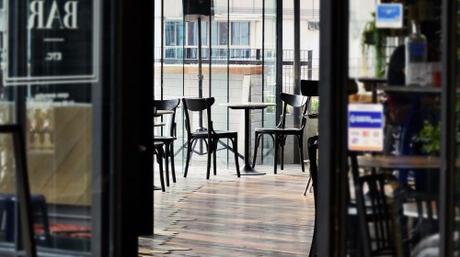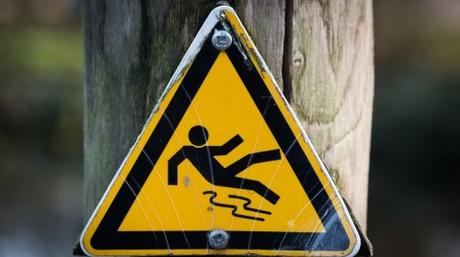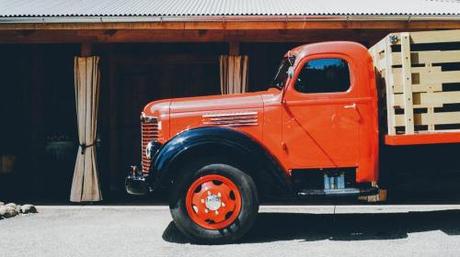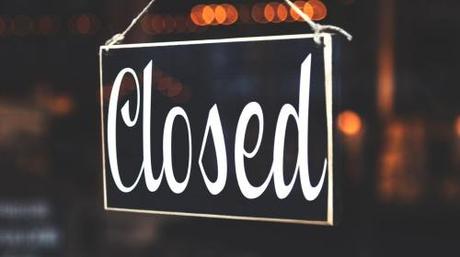Food makes people happy – a reason why ventures that involve food rarely go out of business. If you’re a newbie food business owner, you may be thinking about your trademark to set you apart from competitors, unique theme for interiors and tableware, a solid business plan to attract customers, and legal documents. Insurance, a crucial yet frequently neglected aspect of business management, may not be a priority.
Let’s be honest – insurance is probably the last thing on an entrepreneur’s mind when starting a business. Food business ownership, however, does come with their fair share of risks. If left unprotected with the right insurance, a single catastrophe could cost not only your revenues but also your reputation.
If you’re starting or currently running a food business, you may want to identify the potential risks and talk to an insurance broker about the right coverage to help you mitigate their consequences.
Risk #1: Damages to your business property and its contents

Let’s say you’re running a coffee shop. You have a physical location and essential pieces of equipment and furniture in it. What would happen if your property – your store and all your precious machines – were robbed? Worse, were damaged or destroyed by fire or natural disasters?
What you need: Commercial Property Insurance
- This coverage may help pay to repair your damaged physical location due to fire and/or flood, and replace business belongings that were broken or stolen.
Risk #2: Injuries at your business premises

We’ll stick to the idea that you’re running a café. Let’s say a customer or a visitor enters the shop, steps on your wet floor with no “caution: slippery floor” sign, and stumbles. No one is liable for that injury but you as a business owner.
What you need: Commercial General Liability Insurance (CGL)
- A CGL is a type of liability coverage that’s always included in a business owners policy (BOP). It helps protect you and your business from hefty medical expenses, legal fees, and possible lawsuits should someone gets injured at your premises.
Risk #3: An employee gets badly injured while performing work duties

You’re about to run out of milk, so you ask one of your crew members to buy a couple of milk cartons from a grocery store. On his way to the supermarket, he meets an accident. He needs medical assistance to be able to walk normally again. Obviously, you’re accountable.
What you need: Worker’s Compensation Insurance
- This insurance policy provides financial support to employees who are unable to perform duties due to a job-related illness or injury. Aside from providing aid to your injured workers, the policy also protects you from legal complications should your employee (or his family) sue you.
Risk #5: Harm or damage due to a bad product

A customer made it clear that she wants to have soy milk for her latte since she’s allergic to dairy products. After a few minutes, she reports serious allergic reactions after drinking her coffee. It turns out your barista accidentally put cow milk in her drink. Also, your milk is spoiled, making things worse.
What you need: Product Liability Insurance
- This is a must-have policy for any business owner who manufactures, supplies, and sells products. Product liability insurance protects businesses from claims of physical injury, illness, and/or property damages caused by their products should they turn out to be defective.
Risk #4: A business vehicle gets into a crash

You’re driving your official delivery van. While on your way to the café to drop supplies, you meet an accident, causing serious damage to your vehicle.
What you need: Commercial Auto Insurance
- Car repair is never cheap. Insurance brokers strongly suggest to insure your commercial automobiles, which carry your employees, products, and precious equipment. If you’re using your own car for business operations, your existing personal car insurance may not suffice.
Risk #6: Business interruption due to natural disasters

What would happen to your income if your business location becomes uninhabitable and under repair after a natural disaster? Many small business owners are unprepared for disasters that could interrupt their operations, leaving their income paralyzed should unfortunate events strike.
What you need: Business interruption insurance
- While commercial property insurance covers for the repair costs, business interruption insurance covers for loss of income you suffer after a disaster. This policy helps replace lost business income or pay for added expenses, like your employees’ wage and rent for a temporary relocation, while your main location is under repair.
Risk#7: Data breaches

In today’s digital era, your physical properties aren’t the only things susceptible to theft – your company data (customer’s personal information, employee information, and other confidential business data) may get stolen too.
What you need: Cyber Insurance
- Aside from investing time and resources into using firewall software, securing networks, and encrypting data, ask a credible insurance broker about cyber insurance. It’s designed to protect businesses from internet-based risks including privacy breaches. It may also help pay for things including legal fees and credit monitoring for customers.
Author Bio: Carmina Natividad is one of the daytime writers for Insurance Advisernet NZ, one of the largest and most reliable general insurance brokers in New Zealand, providing high-quality risk management advice for business owners. She enjoys writing practical tips and tricks, making complex finance and business topics easier to digest.
